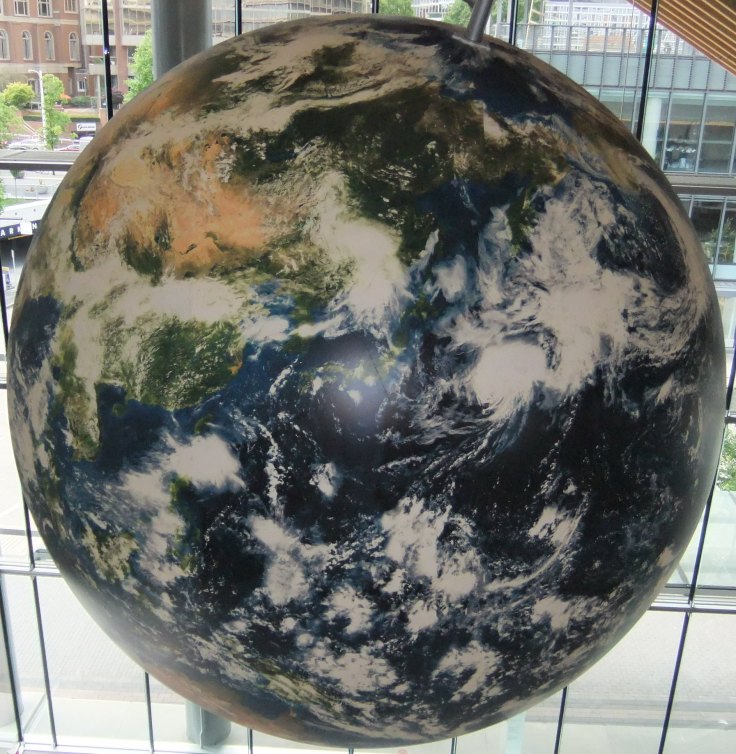
Prime Minister Trudeau called the first ministers together in Vancouver recently to begin mapping out a plan for Canada to meet commitments made at December’s Paris Climate Conference. The Paris meeting was a last ditch attempt to prevent the most dramatic impacts of global warming caused by the burning of fossil fuels whose emissions remain trapped in the atmosphere. At that gathering 195 nations reached an accord committing them to lowering greenhouse gas emissions (GHG) although they did not say by exactly how much.
A leading role
Canada’s record on the climate change file has been poor but Prime Minister Justin Trudeau along with Environment Minister Catherine McKenna assured other nations meeting in Paris that Canada is back and wants to play a leading role. For the government the negotiations in Paris, as difficult as they may have been, were the easy part.
Trudeau and McKenna went to Paris using the Harper government’s commitment of reducing Canada’s 2005 level of GHG emissions by 30 per cent by the year 2030. McKenna called that a “floor” and promised that Canada will do more than that — but it’s a tall order. Rather than going down in recent years, GHG emissions in Canada have been rising. Meeting the promised reductions by 2030 could require GHG cuts equal to all of our current emissions from cars, trucks, electricity production and from buildings across the country.
A price on carbon
Most experts agree that the way to a low carbon future lies in putting a price, or tax, on carbon so that people use less of it and switch to other fuels and technologies. For example, more expensive gas at the pumps could lead to a greater demand for hybrid or electric vehicles which in turn would promote greater innovation in building and marketing them. Other ways forward include more stringent regulations around building codes and support of rapid transit.
But one premier, Brad Wall of Saskatchewan, has already said that he wants no part of a carbon tax. It would ultimately reduce the demand for the oil which his province produces. Premier Wall is facing an election in April and his reaction points lucidly to the difficulties in making long term decisions in the context of a four-year political cycle.
Oil sands and pipelines
There are other sensitive issues on the table as well. The Alberta economy is heavily invested in continued development of the oil sands. However, the province already accounts for 40 per cent of all GHG emissions in Canada. Further development there would make it impossible for Canada to make significant reductions in national emissions.
There is also a determined effort by industry to build more pipelines to get the oil to markets, but mining more oil and gas would simply lead to an increased level of GHG emissions. That is incompatible with Canada’s desire to move to a carbon free economy.
All of this appears daunting and scientific arguments along with the eye-glazing statistics they generate have been difficult for ordinary people to absorb.
Religious and moral values
In that regard, actions being taken by Pope Francis and other religious leaders are proving to be of great help. For one thing, the pope’s 2015 encyclical Laudato Si (On care for our Common Home) helped to move the debate from a scientific and technical one to the deeply personal ground of religious and moral values. The pope argues that we have a sacred duty to care for the earth and that it is the poor who suffer most from environmental destruction caused by consumerism and greed.
No cynicism
Mardi Tindal, a former moderator of the United Church, attended the 2015 Paris climate conference as a member of the Canadian delegation. She believes that Environment Minister McKenna and the prime minister are sincere in what they wish to accomplish and she cautions against cynicism. “Ultimately, we need to understand that we are all in this together,” Tindal says. “We must each commit ourselves to taking the most ambitious actions we can while remaining encouraging and challenging.”
The first ministers meeting in Vancouver did not go nearly as far as most of us would have hoped. It is important that we keep the pressure on, telling them that they must make the hard decisions. We can make some decisions at a personal level as well, starting with less driving and especially less flying.
This piece appeared in a shorter and somewhat different form on my United Church Observer blog on March 3, 2016.
Leave a comment